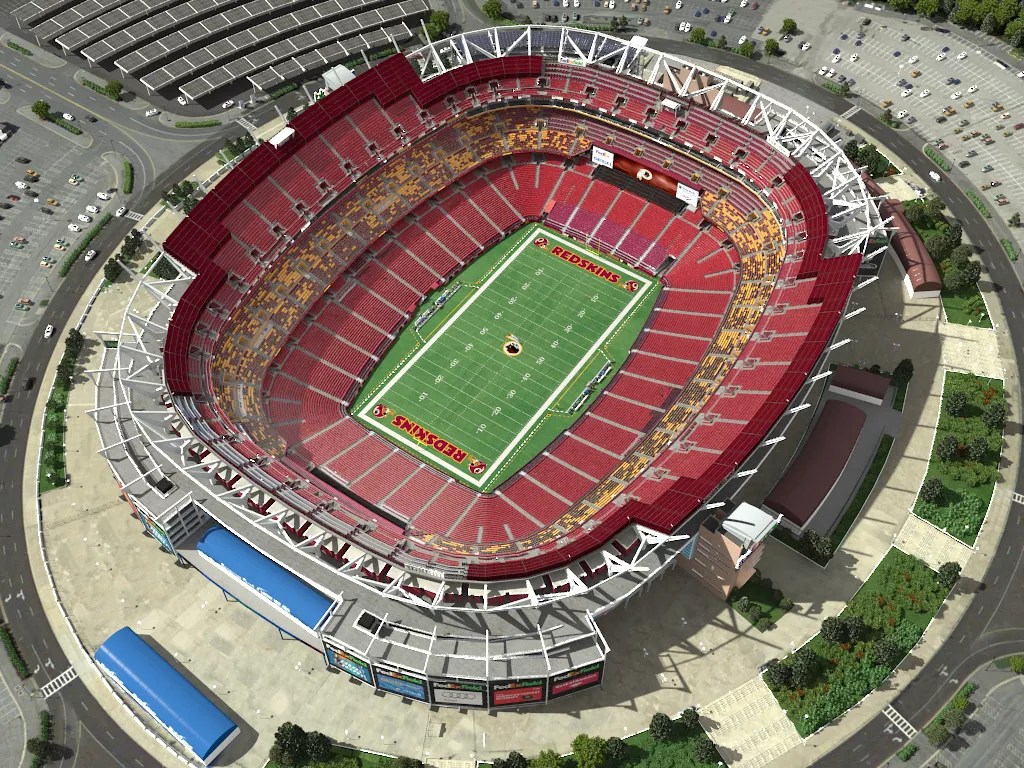
Washington Commanders

Audio By Carbonatix
For many Native Americans, the decision to replace the former names of Washington’s NFL team and Cleveland’s MLB team was not just symbolic. It was a matter of dignity, safety and cultural survival. Now, after President Donald Trump called on both franchises to restore those names, old fears are resurfacing.
Both teams rebranded in the early 2020s after years of protest and legal challenges from Native American advocates. Washington dropped its former name, widely seen as a slur, before the 2020 season and adopted the Commanders name two years later. Cleveland abandoned its “Indians” name after the 2021 season, rebranding as the Guardians.
With Trump threatening to hold up the Commanders’ plan to build a new stadium in Washington if the team does not revert to its original name, Native American scholars and activists say the public debate has returned to a familiar and painful place.
Several prominent Native American advocacy groups such as the National Congress of American Indians and the Association on American Indian Affairs immediately condemned Trump’s comments on the grounds that Native-themed mascots are harmful and widely opposed by Indigenous communities.
David Martínez, a professor of American Indian Studies at Arizona State University, says the teams made the right decision in choosing to change their names and that Trump’s push to reverse course is troubling.
“They made a choice on their own behalf, and many of us in the Native community are grateful they did,” Martínez says. “So when the president tries to use his influence to pressure these teams into going back, that’s problematic. He needs to explain and justify why he thinks there’s a public good in doing this.
“These teams have rights, too – including the right not to be coerced back into adopting a name and image that caused so much friction, so much turmoil between themselves and their fans.”
Stephanie Fryberg, director of the RISE Center at Northwestern University, believes the representations bring intensive harm to Native Americans.
“Recent calls to bring back Native sports mascots do nothing to honor our communities – instead, they reinforce harmful stereotypes and distract from the urgent challenges Native peoples face today,” Fryberg wrote in an email. “Research shows these mascots increase the risk of real psychological harm, particularly for Native youth.”
While the Commanders and Guardians have moved on, embracing their new identities, several other professional or amateur sports teams still have Native American-affiliated mascots. For instance, the Kansas City Chiefs and Atlanta Braves have no plans to change names, while Florida State University has an agreement with the Seminole Tribe to use its nickname and imagery.
That means Braves and Chiefs fans will still perform the controversial tomahawk chop hand gesture at games moving forward, despite some seeing it as a disrespectful symbol toward Native American culture. Additionally, the longstanding history of Native American mascots/team names has influenced numerous fans to pretend they are Native Americans at sporting events, something that Martínez finds deeply disturbing.
“It is that kind of behavior that many Native people find offensive, because if you want to go to a football game and the people in the stands beside you are dressed and behaving that way, it makes you uncomfortable at the very least,” Martínez said. “So, when Trump wants things to go back to the old days, it sends a shiver down a lot of Native spines. Are we going to have to be apprehensive about going to games again because it is going to be people playing Indian?”
Phil Hochberg, an attorney who spent 38 years as the Washington Commanders’ public address and stadium announcer, has a different perspective on this issue.
“Well, I never felt that it was offensive,” Hochberg says. “Of course, I’m not an American Indian. My feeling is that I would not be offended if it’s changed back. But, I think that the president really is starting to get himself involved in a way that is inappropriate.
“Now, what he has said is if the name is not changed back, then he may have to look at inserting himself in the effort to build a new stadium here in Washington. And I certainly wouldn’t like to see him get involved in that.”
By reigniting the Native American mascot controversy, Trump is directing the attention away from what his administration is doing to affect Native Americans at this moment, many believe.
“As mascots make headlines, the administration is proposing nearly $2 billion in cuts to Native programs, slashing federal support for housing, education, job training and critical services in Indian Country,” Fryberg says. “These are not just budget lines, they represent essential commitments grounded in federal trust and treaty obligations.”
For many Native Americans, the team name issue goes beyond sports, and they see it as another way that American society has appropriated and marginalized the people who originally inhabited this land.
“Honoring Native peoples means ending dehumanization in both imagery and policy,” Fryberg says. “Indian Country needs meaningful investment, respect and the restoration of federal commitments – not more distractions or excuses for inaction.”
For more stories from Cronkite News, visit cronkitenews.azpbs.org.